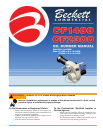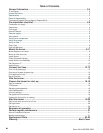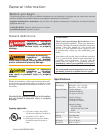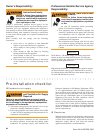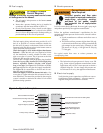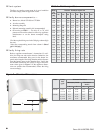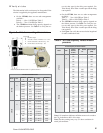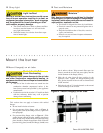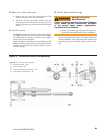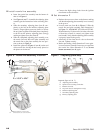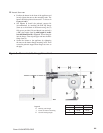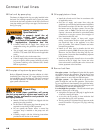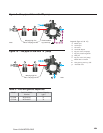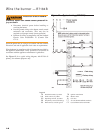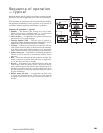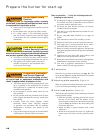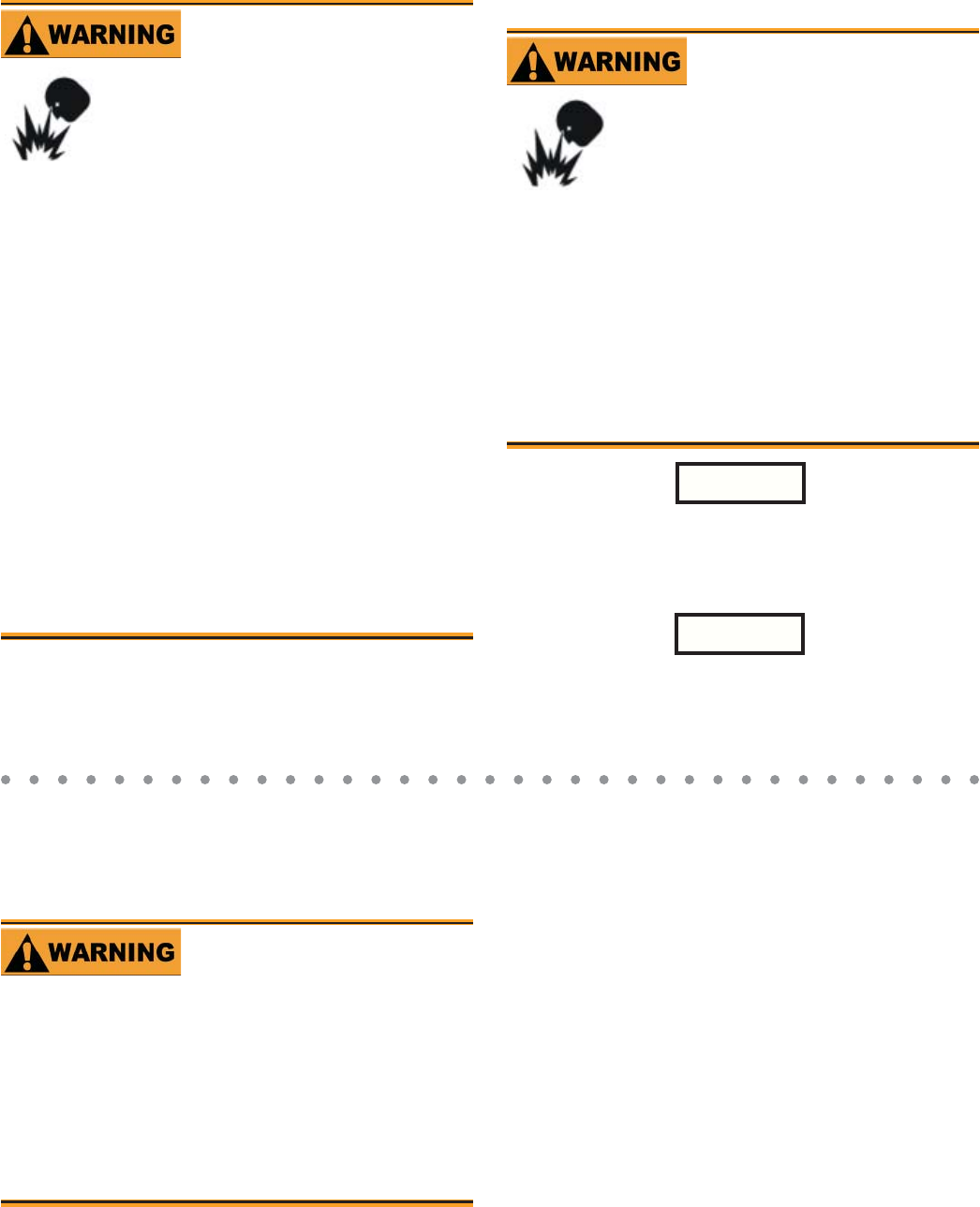
4
Form 6104 BCF23-R05
Please read all instructions before proceeding.
Follow all instructions completely.
This equipment must be installed, adjusted and
started by a qualifi ed service agency that is licensed
and experienced with all applicable codes and
ordinances and responsible for the installation and
commission of the equipment.
The installation must comply with all local codes
and ordinances having jurisdiction and the latest
editions of the NFPA 31 and CSA-B139 & B140 in
Canada.
y
y
y
Failure to follow these instructions
could lead to equipment malfunction
and result in asphyxiation, explosion
or fi re.
Follow These Instructions
Exactly
Professional Installer/Service Agency
Responsibility:
Pre-installation checklist
Combustion air supply
The burner requires combustion air and ventilation air
for reliable operation. Assure that the building and/or
combustion air openings comply with National Fire
Protection Standard for Oil-Burning Equipment, NFPA
31. For appliance/burner units in confi ned spaces, the
room must have an air opening near the top of the room
plus one near the fl oor, each with a free area at least one
square inch per 1,000 Btu/hr input of all fuel burning
equipment in the room. For other conditions, refer to
NFPA 31 (CSA B1139-M91 in Canada).
If there is a risk of the space being under negative pressure
or of exhaust fans or other devices depleting available
air for combustion and ventilation, the appliance/burner
should be installed in an isolated room provided with
outside combustion air.
Clearances
With the burner installed in the appliance, there must be
adequate space in front of and on the sides of the burner
to allow access and operation. Verify that the clearance
dimensions comply with all local codes and with the
appliance manufacturer’s recommendations.
Owner’s Responsibility:
Follow These
Instructions Exactly
Contact a professional, qualifi ed service agency for the
installation, adjustment and service of your oil burning system.
Thereafter, have your equipment adjusted and inspected at
least annually to ensure reliable operation. This work requires
technical training, trade experience, licensing or certifi cation
in some states and the proper use of special combustion test
instruments.
Please carefully read and comply with the following
instructions:
Never store or use gasoline or other fl ammable
liquids or vapors near this burner or appliance.
Never attempt to burn garbage or refuse in this
appliance.
Never attempt to light the burner by throwing
burning material into the appliance.
Never attempt to burn any fuel not specifi ed and
approved for use in this burner.
Never restrict the air inlet openings to the burner
or the combustion air ventilation openings in the
room.
y
y
y
y
y
Failure to follow these instructions,
misuse, or incorrect adjustment of
the burner could lead to equipment
malfunction and result in asphyxia-
tion, explosion or fi re.
50 Hz Motors - The burner ratings, air settings and nozzle
ratings are based on standard 60 Hz motors (at 3450 rpm).
Derate all ratings 20% when using 50 hz motors. Consult fac-
tory for specifi c application data.
NOTICE
High altitude installation - Accepted industry practice requires
no derate of burner capacity up to 2000 feet above sea level.
For altitudes higher than 2000 feet, derate burner capacity 2%
for each 1000 feet above sea level.
NOTICE
The burner cannot properly burn the fuel if it is not sup-
plied with a reliable combustion air source.
Follow the guidelines in the latest editions of the NFPA
31 and CSA-B139 regarding providing adequate air for
combustion and ventilation.
y
y
Failure to provide adequate air supply could
seriously affect the burner performance and re-
sult in damage to the equipment, asphyxiation,
explosion or fi re hazards.
Adequate Combustion
and Ventilation Air Supply
Required



